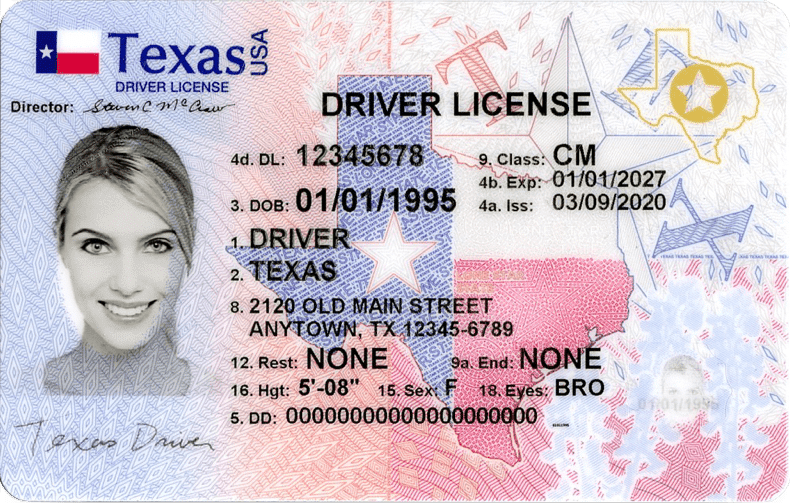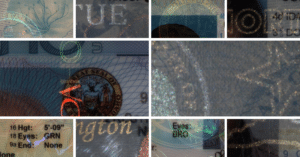Overview of Texas ID scanning laws
Texas has 6 laws which we consider relevant to ID verification, in addition to other laws which may related to age verification, identity verification, KYC, privacy, and biometrics.
Can you scan IDs in Texas?
There are restrictions on ID scanning in Texas. According to Texas Transportation Code 521.126, only the following are allowed to scan IDs in Texas:
- Financial institutions
- Businesses verifying ID for check payments
- Hospitals and healthcare providers
- Law enforcement and government entities
- Alcohol and tobacco retailers
- Public schools or nonprofits, for employee screening
- Poll workers verifying voter identity
Can you save data from a scanned ID in Texas ?
Only the above mentioned situations allow for the storage of ID scan data in Texas. These businesses must ensure this information is kept confidential and most are restricted from storing any information other than what is printed on the license. Texas SB650 actually redlined the section of the bill that required data purge, and so specifically allows for data retention from a scanned ID.
Does Texas offer affirmative defense for ID scanning?
Yes, Texas has affirmative defense laws related to ID scanning for alcohol and tobacco sales.
What types of IDs does Texas issue?
Texas issues drivers licenses and state IDs, including REAL ID. The Texas mobile drivers license (mDL) is expected to launch in 2025.
Individual Texas ID verification laws
ID scanning for alcohol sales
This bill requires electronic ID readers at grocery and convenience stores that sell alcohol.
Effective 9/1/2025
Age verification for tobacco sales
Texas requires that businesses verify age for tobacco sales. Electronic scanning or verification is not required, but will assist in offering affirmative defense if an underage person completes a purchase.
ID scanning for private clubs in Texas
In some cases, private clubs in Texas are required to maintain records of IDs for alcohol sales. ID scanning can ensure this process is efficient and accurate.
Receipts and returns
Retailers in Texas are permitted to verify driver’s license numbers for returns if there is no receipt, but are prohibited from printing this number on any receipts.
Age verification for social media
Texas requires social media platforms to register user ages and restrict certain content and practices if the user is under 18.
Age verification for pornography
Texas requires commercial entities that show sexual material to verify age to ensure individuals are at least 18 years old.
Data privacy and biometrics laws in Texas
The Texas Data Privacy and Security Act (TDPSA) applies to large companies that do business in Texas. Rights for consumers include:
- Confirmation of whether a controller is processing their personal data
- Access to this data, including a portable copy
- Request the correction of inaccuracies
- Request deletion
- Opt-out of processing for targetted advertising, profiling, or sale
- Appeal a controller’s refusal to take action on a request
- Designate an agent to act on their behalf to opt out of processing
Business obligations include:
- Implementation of security measures to prevent unauthorized access, use, or disclosure of personal data
- Conduct data protection assessments for processing that pose heightened risks
- Provide privacy notices to consumers
- Limit the collection of personal data to what is adequate, relevant, and reasonably necessary
- Not discriminating against a consumer for exercising their rights
Texas Business & Commerce Code 503.001 requires that businesses capturing biometric identifiers must inform individuals and receive their consent before capturing the biometric identifier. This data may now be sold, leased, or otherwise disclosed.



